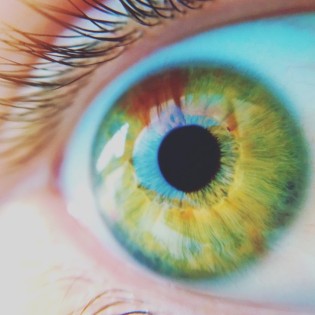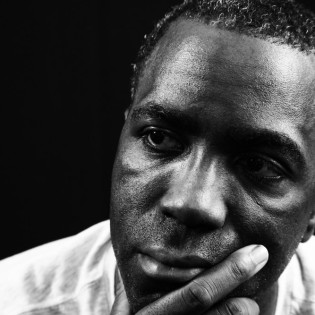ChatGPT and the future of content

AI software may save time. Or finish creativity for good. Here's what to do
A funny thing happens when you sign up to ChatGPT. It asks you to do a reCAPTCHA test. To check you're not a robot.
ChatGPT is scarily fast. For an older non-robot like me, it feels like seeing the potential of the internet for the first time – multiplied many times. Energising and inspiring, with a shudder of foreboding.
In the first few minutes of use last week, I got the gargantuan AI chatbot to provide workmanlike ideas for financial content. Most were tired and obvious – the sort of thing that’s been done a thousand times – but a few weren’t bad.
It created five quite good social media posts about growing lemons. But it couldn’t write a piece about citrus fruit cultivation in the style of the TV presenter Monty Don nor indeed in the manner of James Joyce.
The latter was loosely literary but not Joycean:
The lemon tree stood in the corner of the garden, its gnarled branches reaching skyward as if in a silent plea for the sun's nourishment. The leaves, a vibrant green, rustled in the breeze, a symphony of movement and sound.
It confused You Got The Love – the song popularised by Candi Staton – with that by Rufus and Chaka Khan. It apologised for its mistake, but continued to say it was written by Candi Staton. It wasn't. One small win for human nerdery in a massively one-sided bout.
ChatGPT gave a Wikipedia-ish answer to a question about the 1960s media theorist Marshall McLuhan, but was able to pare it down to sentences of fewer than 15 words all but instantly. Blimey.
It could tell me the drying time of internal plaster – a week – but couldn't give me the information from a single accredited source.
Oh, and obviously we all know robots don’t do sarcasm. Well, maybe not entirely. So I asked ChatGPT to write a piece about the British weather using irony.
Here’s an ok-ish excerpt:
The real beauty of the British weather is its unpredictability. You never know what's coming next. It's like a box of chocolates, you never know what you're going to get. Except it's not sweet.
Turning to more commercial possibilities, I gave it one of Highbrook’s editing tests for job applicants, asking it to improve the writing and bring the most important point to the top. It moved that key sentence from paragraph five to paragraph two but stuck with the existing dull intro. Real people have done worse.
I tried a second editing test. A welcome email for a crypto company littered with spelling errors, including the names of currencies. It corrected most of them but let through a misspelling of Stellar Lumens and some poor punctuation.
Impressive. And every time it interacts with fools like me, it gets better. But does it make us laugh, make us cry, motivate or illuminate? Probably not.
ChatGPT and content
So, what does all this mean for content creation, language, search engines and democracy?
ChatGPT can turn out word-perfect SEO-friendly explainers on mainstream subjects in seconds (there are already many tutorials on LinkedIn). The quality is what you would expect with a decent copy-editor. The lack of sourcing is a drawback, but apparently that’s coming.
That suggests every digital shop in the land will soon be offering AI content to small businesses at knock-down rates. Six pieces on yellow fruit cultivation within the hour? No problem. No writers are needed, although editors might need to tidy the work. This will also benefit those with big personalities and profiles but who can’t write.
Result: the internet will be awash with ever more bland, repetitive, expandable word-foam. More and more AI content will lead to a bland-out death spiral of prose no one will read.
It will be beige and anodyne, made of fragments of other people’s writing whizzed up in the AI mixer and churned out as new.
That will mess with search. Google staff are already on a code red alert, seeing a threat to the search engine’s existence. They’re right. Why look through 10 SERPs when you can just have the answer pop up?
No wonder Google's recent E-EAT announcement added an E for Experience to the expertise-authority-trust acronym. It also talks of authenticity, a sure dig at robots.
AI, news and democracy
In a way, ChatGPT reverts to the earlier internet model of the walled garden: everything in one place, everything curated, no diverging views.
Half the fun and fear of search results, of course, is seeing different takes from different places. When I asked ChatGPT to show me differing views on whether the US presidential election was a fraud, it refused, suggesting I try news outlets or government sources. Pretty much telling me not to bother my silly head on such nonsense.
Surely, we are marginally better off hearing opposing ideas rather than getting nothing?
We are in an odd war, with Google on one side standing up for people and plurality; and ChatGPT on the other offering an overwhelming technocratic sludge. To support Google is perhaps a 21st century form of Luddism.
Much has been made of ChatGPT’s ability to write college essays or at least make iterative improvements on an existing piece of writing.
It’s unlikely the world’s educators will be able to stop this. This suggests that even at the higher levels of education, learning how to write well will be a forgotten skill.
Few will be able string together an elegant sentence any more than they can code or build a computer. We accept the last two shortcomings despite code and computers running our lives. To lazily give up on good language would be a step too far.
It’s easy to imagine what ChatGPT and AI are doing with text will soon be done with speech. At which point being literate is no longer a prerequisite for participating in society.
The last 5,000 years of reading and writing may come to be seen as an intermediate technology before AI was able to aggregate and manipulate the spoken word. That’s probably another post.
What must creators do after ChatGPT?
So my message to content-creators, writers and clients commissioning content is: shape up.
Show you are better. Write rich, original, vivid, characterful expert words. Be yourself. Go outside. Talk to people. Read real poetry. Grow lemons and write about it.
Second-rate content won’t cut it – if it ever did. Please do not wring every last drop of personality from the work through stultifying, multiple rounds of amends. Do not turn articles written by humans into something robotic through over-editing.
Write powerful words and enjoy them. Put author’s names and images on pieces, and give them a bio page.
(Not for nothing is this company’s slogan “Clever content. Made by Humans.”)
ChatGPT is not the end of the word – or, indeed, the world. It is an amazing, exciting technology that can help. It is the biggest, cleverest aggregator of knowledge ever (at least this week).
Neither is it the enemy of humanity. It’s only as evil and stupid as people who train it (I’m sure many are trying to teach it to hate right now). Equally, it’s only as good and clever as the people who train it. And it can’t grow lemons.
Granted, it has the ability to bend truth and erode democracy in the wrong hands, but then so did priests and so do publishers, politicians and social media algorithms.
In the end, it’s all in the writing. Keep writing.





